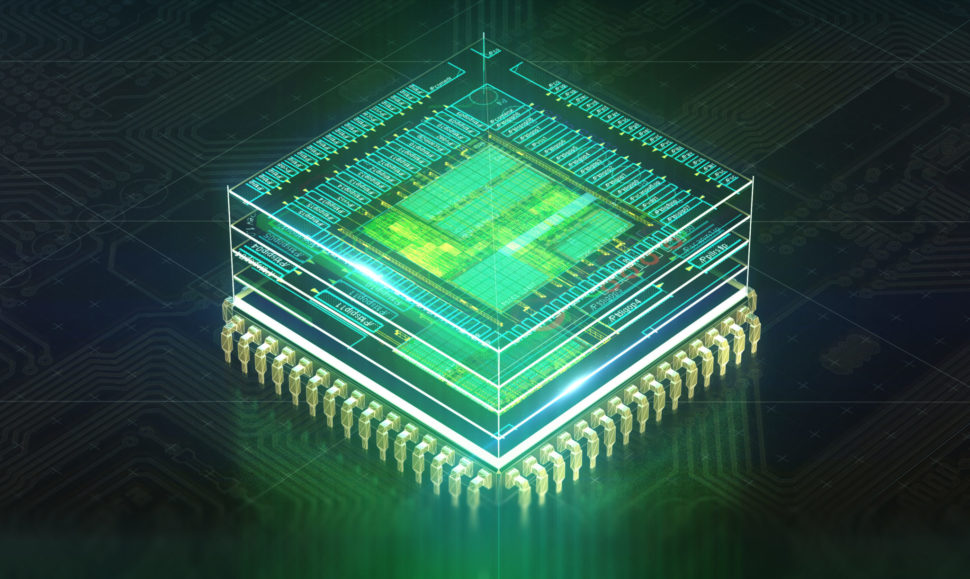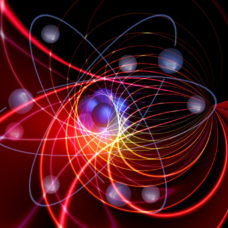While we’re waiting for quantum computers to leap out of the labs and into the practical world, scientists are investigating whether the human consciousness operates within a quantum system.
Not only has quantum physics changed our view of the world, it’s also helped inform the way we go about our daily lives.
If the “little” we already know about the quantum world changed our lives into what it is today, we have yet to unlock all its mysteries.
Read More: How Close are we to Quantum Infrastructure?
We also have yet another equally tough nut to crack that at first sight could seem unrelated to quantum mechanics: the human consciousness.
The Quantum Processor Inside Your Head

Some scientists think that the brain itself might be an organic quantum machine. This is the view of Matthew Fisher, a theoretical physicist at UC Santa Barbara.
After years of research into “quantum neuroscience”, Fisher is heading the newly launched Quantum Brain Project (QuBrain). This is an international research initiative which is setting out to ask one question, in Fisher’s own words:
“Might we, ourselves, be quantum computers, rather than just clever robots who are designing and building quantum computers?”
Until the QuBrain project runs its tests and reveals its results, there could be an interesting angle to discuss.
Sophisticated though silicon AI could be now, it still falls behind the human brain when it comes to accomplishing many tasks like those involving social intelligence, consciousness, and self-awareness.
On the other hand, quantum computers would be much more than a simple optimization or update to current systems.
Quantum computing is based on radically different foundations that rest upon matter’s intrinsic microscopic behavior and properties.
However, we’re still after a commercial quantum processor that would kick the technology into real-world applications.
But, according to some theorists, we might have a small quantum processor right inside our head that, in lieu of qubits, runs on neurons.
Nobody seems to fully understand the inner workings of the human brain. We also still don’t have a full understanding of how quantum mechanics really works. It may be that they are more closely connected than we might think.
The Theory of “Quantum Consciousness”
One of the strangest concepts of quantum theory is the “Observer Effect”. According to this theory, in some quantum cases, the observer somehow influences the behavior of matter.
In the simplest of terms, a quantum system is not an object that exists with a predefined and permanent state.
It’s only the observation of the system that localizes the position and momentum of a particle in a given place at a given time.
As far as our understanding of quantum mechanics goes, the observer is a fundamental element within the quantum theory. Without this theory, the reality of quantum theory “falls apart”.
Per the observer physics, there is no objective reality as an observer can influence how this reality unfolds.
Other scientists argue that not only does consciousness have a direct effect on a quantum field, or at least acts on quantum reality, but that consciousness itself is of a quantum nature.
Oxford physicist and mathematician Sir Roger Penrose has been working since the 1990s on a “quantum theory of consciousness” with fellow physicist Stuart Hameroff.
According to their ORCH-OR theory (Orchestrated Objective Reduction), quantum processes take place in “microtubules” inside the brain neurons to enable consciousness. This theory describes a kind of quantum algorithm that continues to function even after death.
A recent discovery of quantum vibration inside the brain has given some credibility to the ORCH-OR theory.
https://www.youtube.com/watch?v=lJmzfdF4CZk&feature=youtu.be
However, the world of “quantum consciousness” is still a bit of a Wild West in the scientific world. Although there are some theories that may posit interesting hypotheses, there is still plenty that is completely unknown.
It may be true that our brain works within a quantum system, but for now, this is no more than an interesting talking point.



















Let us recall Helmholtz: “Similar light produces, under like conditions, a like sensation of color.”
We can both broaden and tighten this observation and say, with a nod to Heisenberg, that the same state vector, acted upon by the same matrix operator(s), produces the same *spectrum* of secondary qualities.
I have called attention to *spectrum* because, as the mathematician Steen reminds us, early on in the history of 20th-century physics, “The mathematical machinery of quantum mechanics became that of spectral analysis.”
Which is just this business of matrices and vectors. And so we can say all there is to say about colors, sounds, and so forth without leaving the familiar setting of Heisenberg’s formulation of QM.
This result is of fundamental importance because, as Hume understood long ago, the artificial division of primary and secondary properties lies at the very crux of the scientific worldview.
http://bit.ly/2HjbYlY
Curiously, we also model NNs via matrices operating upon vectors.
Then, too, engineers use this mathematics to model both color and sound.
Does neural form follow quantum function?
Dyson tells us in his nice article on “Field Theory” that “There is nothing else except these [quantum] fields: the whole of the material universe is built of them.”
Pursuing this line of thought, it seems to follow that our perceptual fields just are quantum fields — most plausibly photon fields.* The alternatives appear to be rather few. And this would seem to go a long way toward explaining “why” the “two” fields reliably co-vary.
A remark from Salam bolsters this point: “All chemical binding is electromagnetic in origin, and so are all phenomena of nerve impulses.”
At the risk of belaboring the obvious, if consciousness is a phenomenon of nerve impulses, then consciousness is EM in origin.
Happily, the scientific community is beginning to catch on, as is evident from the video posted here, where Nobelist Frank Wilczek recapitulates a number of my points.
http://bit.ly/2AnoaMc
We round out today’s discussion with some comments from William James:
“Now the immediate fact which psychology, the science of mind, has to study is also the most general fact. It is the fact that in each of us, when awake (and often when asleep), some kind of consciousness is always going on. There is a stream, a succession of states, or waves, or fields (or of whatever you please to call them), of knowledge, of feeling, of desire, of deliberation, etc., that constantly pass and repass, and that constitute our inner life. The existence of this stream is the primal fact, the nature and origin of it form the essential problem, of our science. So far as we class the states or fields of consciousness, write down their several natures, analyze their contents into elements, or trace their habits of succession, we are on the descriptive or analytic level. So far as we ask where they come from or why they are just what they are, we are on the explanatory level.”
__________
* “Are Perceptual Fields Quantum Fields?” by yours truly.
http://bit.ly/7Lutv5
Thank you for sharing!
You bet!
I’ve always been fascinated by the Orch-Or theory and think it’s probably correct. It does however open a fascinating series of doors which implies there’s a lot more going on in the universe than we ever suspected. It’s kind of counter-intuitive for a lot of scientists, though, as while it implies consciousness is related to other levels of reality–Penrose is one of the enemies of String Theory. The theory also makes it very unlikely A.I. could ever be created as it would mean consciousness is a biological-quantum process.
My understanding is that quantum waves of potentiality (outside of space and time) are collapsed into particles of actuality (inside space and time) via intention(al) choice to think on archetypes of higher consciousness (outside space and time). I am in the end stages of developing a biosurvey (computer program that operates on quantum physics based principles to elucidate quantum field derived nutritional supplement recommendations (outside space and time) to optimize Quantum Brain (inside space and time).